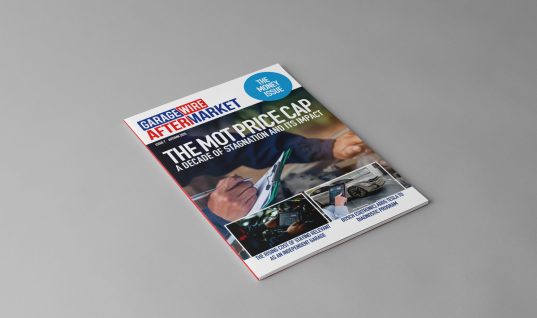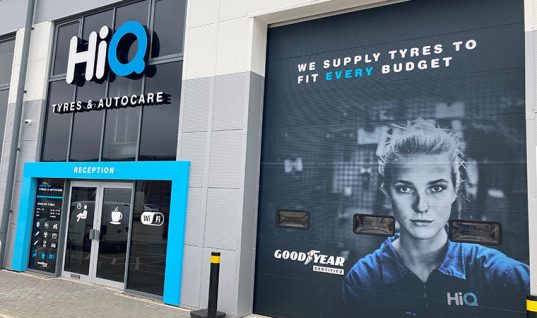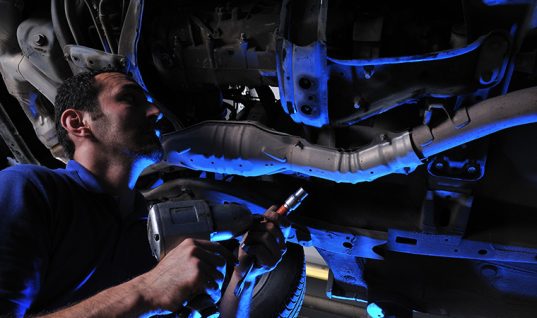Now that the dust has settled and stock has been taken, here’s what the industry thinks of the first Labour budget in 14 years.
Mike Hawes, SMMT Chief Executive
“The Chancellor is right to set out measures to address the deficit while investing for future growth. The automotive industry is a growth-driving sector, fundamental to the delivery of the country’s net zero ambitions. We therefore welcome today’s commitment of £2 billion of automotive transformation funding as part of the government’s modern Industrial Strategy.
Delivering that strategy depends on the UK being globally competitive. Additional National Insurance Contributions will put massive pressure on the automotive supply chain which is predominantly SMEs. Next year’s spending review must find resources to fund measures that alleviate the strain on these companies and help them transition to an electrified future.
A strong manufacturing sector depends on a strong market. The lack of substantive measures to support the new car market – in particular for electrified vehicles – is hugely disappointing. We welcome the extension of the Plug-in Van Grant and company car tax benefits, but these alone cannot drive the growth in demand needed. With the sector challenged to deliver the world’s most ambitious EV transition targets, achievement of those targets is in serious doubt. There must be an urgent review of the market and regulation, else the cost will soon be felt in reduced UK investment, economic growth and jobs.”
Institue of the Motor Industry
The IMI is delighted that the Chancellor has, today, acknowledged the importance of automotive in the industrial strategy with a £2bn commitment for the sector, supporting the growth of the electric vehicle parc. The IMI believes it is critical that a share of this commitment is allocated to training and continuous professional development for those working both inside and outside the factory gates, alongside manufacturing infrastructure.
The professional body for people in automotive also welcomes the government’s commitment to further education with a £300 million increase in funding and the increase in Employment Allowance – to £10,500 – for the smallest employers.
The IMI is however, disappointed by the much-rumoured increase in employer NI contributions from April 2025, combined with a reduction in the secondary threshold to £5,000 pa. These changes are likely to have a significant impact on costs for small businesses that operate in the automotive sector, which is already facing a skills gap of 20,000+ vacancies.
These additional costs are likely to dampen investment in training and continuous professional development and impact the ability of the sector to be ready to support the governments decarbonisation targets.
The IMI will continue to provide its members with a voice and represent their interests with government.
It will also be responding to the government’s Industrial Strategy green paper: Invest 2035: The UK’s Modern Industrial Strategy and is urging its members to have their say in a forthcoming webinar.
Thoughts from the editor
While the Chancellor’s Autumn Budget brought some welcome news for motorists, concerns still remain about the future of the automotive industry.
The extension of the fuel duty freeze until March 2026 is a positive step, offering some relief to drivers amid the ongoing cost-of-living crisis. And, the government’s commitment to incentivising electric vehicle adoption through favourable company car tax rates is also encouraging.
But the increased vehicle excise duty (VED) rates for petrol and diesel, coupled with the less favourable tax treatment for hybrid vehicles, could discourage the uptake of lower-emission alternatives.
As you’ve probably read above The Society of Motor Manufacturers and Traders (SMMT) has expressed disappointment with the lack of substantive measures to support the new car market which has been rather flat for the last year, particularly for electrified vehicles. Without incentives the government’s ambitious EV transition targets may be difficult to achieve.
The introduction of a new fuel price transparency scheme, designed to help consumers find the cheapest fuel, is a positive step. However, the delayed implementation until late 2025 kicks the can down the road.
While the government’s efforts to support the transition to electric vehicles are commendable, more needs to be done to address the challenges facing the wider automotive industry, including the need to support the manufacturing sector, upskilling the current workforce, boosting career uptake at educational level and encouraging consumer demand for low-emission vehicles.
Autumn Budget 2024 at a glance
Fuel Duty:
- The freeze on fuel duty has been extended until March 2026, providing some relief for motorists.
Vehicle Excise Duty (VED):
- Zero-emission vehicles will continue to benefit from low first-year VED rates.
- Hybrid vehicles will see increasing VED rates as emissions rise.
- Petrol and diesel vehicles will face significant VED increases from 2025-26.
Company Car Tax (CCT):
- Electric vehicles will continue to have lower CCT rates, with a gradual increase over the next few years.
- Hybrid vehicles will see a steeper increase in CCT rates.
- Petrol and diesel vehicles will face higher CCT rates.
Electric Vehicle Infrastructure:
- The government has committed to investing over £200 million to expand the UK’s electric vehicle charging network.
- A £120 million fund will support the purchase of electric vans and wheelchair-accessible electric vehicles.
Heavy Goods Vehicles and Vans:
- Vehicle Excise Duty rates and Levy for HGVs will increase in line with inflation from April 2025.
- Van Benefit and Fuel Benefit charges will also rise in line with inflation.
Fuel Price Transparency:
- A new “Fuel Finder” scheme will require petrol stations to report price changes and shortages within 30 minutes, providing greater transparency for drivers.








Peter Spurr
The continued investment and subsidies in electric car is only going to
distroy the after market motor trade.
Electric car need no regular matainance ie oil change, cambelts, clutches . There will only be big expensive repairs when Major componants fail which the main dealer will need to do to fund there workshops and The customers will want them done under warranty because they are so expensive.(AC pumps at £2500 to repair). When the cars are out of warranty the cost of repair will mean they are scrapped due to the values of old second hand electric car being so low. This will mean no work for independant garages and on top the low price of MOT test many independant garages will go out of bussiness and all the parts supplers. So I fail to see how investing in electric car is going to be good for our economy.
David Greenwood
I am not sure Mike Hawkes knows what he is talking about?
Nicola Ewen
With the costs increasing for small garages when will the government look at the MOT fee which has remained the same for a number of years……